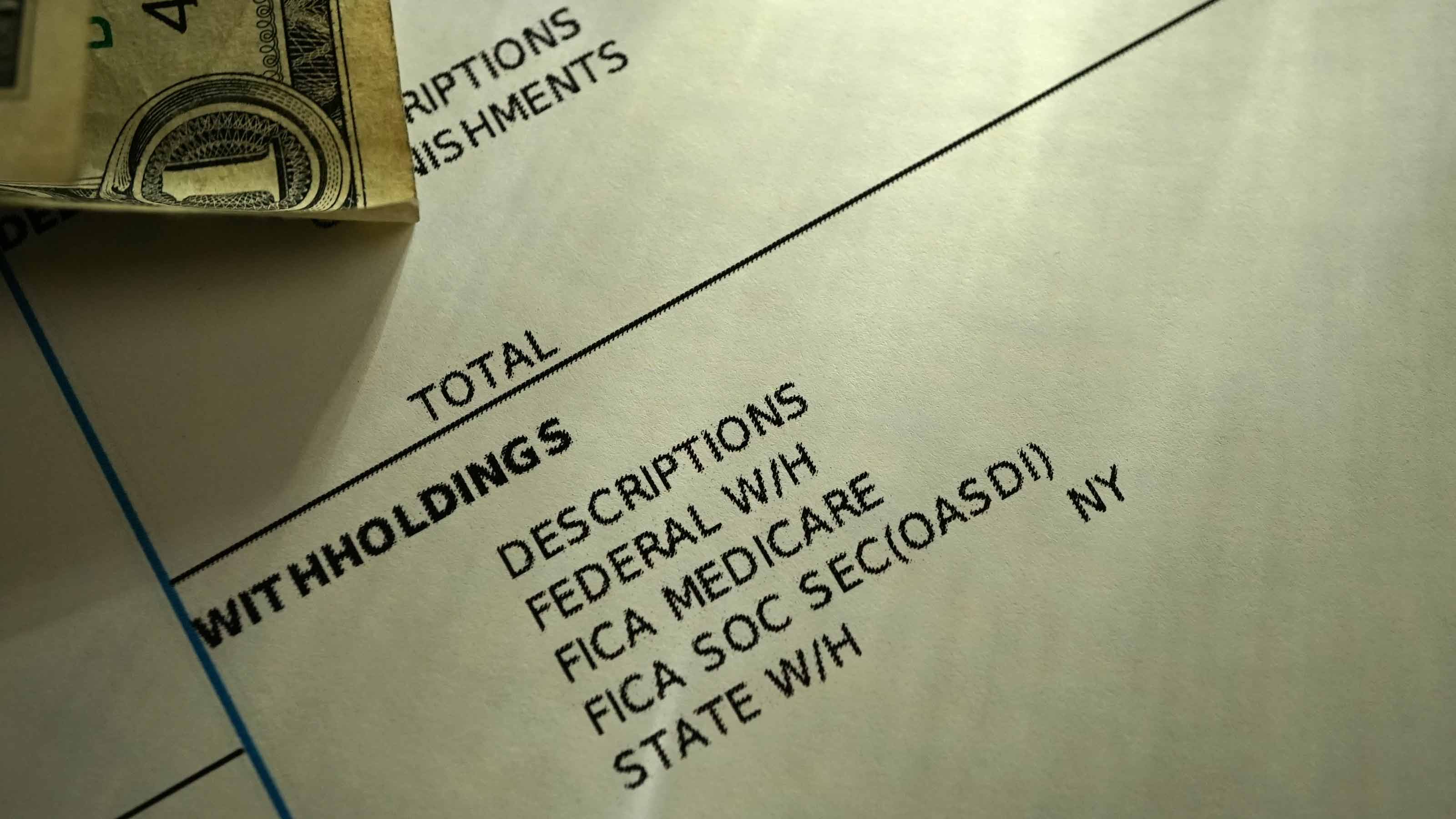FSA or Child-Care Credit?
There is a way to benefit from both options if you have two or more children.

Profit and prosper with the best of Kiplinger's advice on investing, taxes, retirement, personal finance and much more. Delivered daily. Enter your email in the box and click Sign Me Up.
You are now subscribed
Your newsletter sign-up was successful
Want to add more newsletters?

Delivered daily
Kiplinger Today
Profit and prosper with the best of Kiplinger's advice on investing, taxes, retirement, personal finance and much more delivered daily. Smart money moves start here.

Sent five days a week
Kiplinger A Step Ahead
Get practical help to make better financial decisions in your everyday life, from spending to savings on top deals.

Delivered daily
Kiplinger Closing Bell
Get today's biggest financial and investing headlines delivered to your inbox every day the U.S. stock market is open.

Sent twice a week
Kiplinger Adviser Intel
Financial pros across the country share best practices and fresh tactics to preserve and grow your wealth.

Delivered weekly
Kiplinger Tax Tips
Trim your federal and state tax bills with practical tax-planning and tax-cutting strategies.

Sent twice a week
Kiplinger Retirement Tips
Your twice-a-week guide to planning and enjoying a financially secure and richly rewarding retirement

Sent bimonthly.
Kiplinger Adviser Angle
Insights for advisers, wealth managers and other financial professionals.

Sent twice a week
Kiplinger Investing Weekly
Your twice-a-week roundup of promising stocks, funds, companies and industries you should consider, ones you should avoid, and why.

Sent weekly for six weeks
Kiplinger Invest for Retirement
Your step-by-step six-part series on how to invest for retirement, from devising a successful strategy to exactly which investments to choose.
I have to make choices about my employee benefits during this year’s open-enrollment season. Is it better to pay for child-care expenses from a flexible spending account or to take the child-care tax credit?
If your employer offers a dependent-care flex plan, that’s usually a better deal than taking the child-care tax credit. Money you set aside in a flexible spending account is not only deducted from your gross salary before income taxes are calculated but also avoids the 7.65% Social Security and Medicare tax. So if you’re in the 15% income-tax bracket, contributing $5,000 to your flex plan (the maximum for most employers’ plans) would cut your federal income-tax bill by $1,133 next year. The benefits get better as your tax bracket rises, and you’ll save even more if your FSA contribution escapes state income taxes, too.
The dependent-care tax credit can help if you don’t have an FSA at work. It’s most valuable for people with very low incomes. To qualify, you must pay someone to watch a child who is younger than 13 so that you can work or look for work. Both spouses must have earnings from a job or self-employment, unless one is a full-time student. You can take a tax credit worth 20% to 35% of the cost of care, up to $3,000 for one child or up to $6,000 for two or more children. The higher your income, the lower the credit, bottoming out at 20% for those who earn $43,000 or more. The 20% credit would cut your tax bill by $1,000 if you pay $5,000 in child-care expenses for two kids.
From just $107.88 $24.99 for Kiplinger Personal Finance
Become a smarter, better informed investor. Subscribe from just $107.88 $24.99, plus get up to 4 Special Issues

Sign up for Kiplinger’s Free Newsletters
Profit and prosper with the best of expert advice on investing, taxes, retirement, personal finance and more - straight to your e-mail.
Profit and prosper with the best of expert advice - straight to your e-mail.
But there is a way to benefit from both options: If you have two or more children and your child-care expenses exceed $5,000 per year, you can set aside up to $5,000 in pretax money in your FSA, then claim the dependent-care credit for up to $1,000 in additional expenses.
For more information about the child-care tax credit, see FAQs on the Child Care Tax Credit.
Profit and prosper with the best of Kiplinger's advice on investing, taxes, retirement, personal finance and much more. Delivered daily. Enter your email in the box and click Sign Me Up.

As the "Ask Kim" columnist for Kiplinger's Personal Finance, Lankford receives hundreds of personal finance questions from readers every month. She is the author of Rescue Your Financial Life (McGraw-Hill, 2003), The Insurance Maze: How You Can Save Money on Insurance -- and Still Get the Coverage You Need (Kaplan, 2006), Kiplinger's Ask Kim for Money Smart Solutions (Kaplan, 2007) and The Kiplinger/BBB Personal Finance Guide for Military Families. She is frequently featured as a financial expert on television and radio, including NBC's Today Show, CNN, CNBC and National Public Radio.
-
 Dow Adds 1,206 Points to Top 50,000: Stock Market Today
Dow Adds 1,206 Points to Top 50,000: Stock Market TodayThe S&P 500 and Nasdaq also had strong finishes to a volatile week, with beaten-down tech stocks outperforming.
-
 Ask the Tax Editor: Federal Income Tax Deductions
Ask the Tax Editor: Federal Income Tax DeductionsAsk the Editor In this week's Ask the Editor Q&A, Joy Taylor answers questions on federal income tax deductions
-
 States With No-Fault Car Insurance Laws (and How No-Fault Car Insurance Works)
States With No-Fault Car Insurance Laws (and How No-Fault Car Insurance Works)A breakdown of the confusing rules around no-fault car insurance in every state where it exists.
-
 2023 Social Security Tax Wage Base
2023 Social Security Tax Wage BaseWealthier Americans will have more Social Security taxes taken from their paychecks next year because more of their income will be subject to the tax.
-
 Five Big Tax Breaks at Work
Five Big Tax Breaks at Worktax planning Did the 2021 tax refund you expected turn into a surprise tax bill? Taking advantage of your employee benefits package could help you lower your taxable income.
-
 5 Year-End Moves to Help Retirees Trim Their Tax Bill
5 Year-End Moves to Help Retirees Trim Their Tax Billtaxes The end of the year is a great time to start thinking about next year's tax bill. Here are some strategies on how to reduce what you will owe Uncle Sam.
-
 Why Today’s Retirees Need to Pursue Tax-Minimization Strategies
Why Today’s Retirees Need to Pursue Tax-Minimization Strategiestax planning IRAs are the name of the game for today’s retirees. While they come with helpful tax breaks for savers, pulling money out in retirement comes with major tax consequences — which could get much more serious if taxes rise in the future. But there are things you can do about that.
-
 4 Ways to Keep Your Taxes Down If You Are Self-Employed
4 Ways to Keep Your Taxes Down If You Are Self-Employedtax exemptions Whether you drive for a ride-hailing service on the side or work full-time as your own boss, these tips can help you save money when time comes to pay taxes.
-
 Will Your Stimulus Check Increase Your Tax on Social Security Benefits?
Will Your Stimulus Check Increase Your Tax on Social Security Benefits?Coronavirus and Your Money The answer to this question comes down to whether your stimulus check increases your "provisional income."
-
 Smart Ways to Save on Child Care Costs
Smart Ways to Save on Child Care CostsStarting a Family The expenses and tax complications that come with hiring a nanny were reason enough for me to take my son to day care instead.
-
 5 Ways to Prepare for Higher Taxes Under President Biden
5 Ways to Prepare for Higher Taxes Under President Bidentax planning Will you be affected by tax changes in the future? Growing national debt, changes in Washington, and new policies on the horizon could impact you more than you might think. Here are five ways to prepare for higher taxes in the future.